On Air Now
Calm Classics with Myleene Klass 10pm - 1am
7 March 2024, 10:43 | Updated: 7 March 2024, 21:58
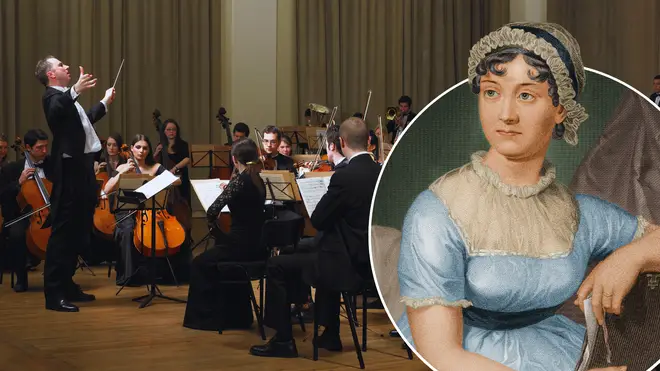
In honour of World Book Day, we’ve compiled some of the most moving quotations ever written about music by some of the best authors, poets and philosophers in history.
The link between music and literature is unmistakable, spanning centuries, canons and creators of all kinds. Who better, then, than the world’s greatest writers to try and achieve the impossible – describing the power of music in words?
Read more: 7 of the best pieces of classical music for reading
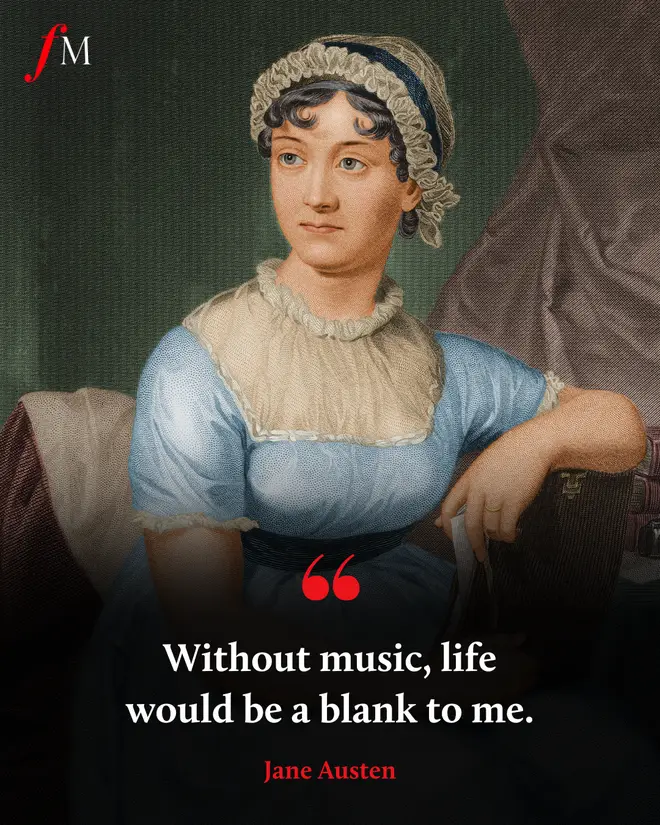
British novelist Jane Austen penned this relatable quote in her 1815 novel Emma, spoken by ‘Mrs. Elton’. Austen herself was an accomplished pianist, practising every day. In the Regency period, it was expected that all refined young ladies play the piano, and Austen was no exception. Music books were expensive, however, so Austen would often copy out borrowed scores by hand, onto ruled pages in her diary. Austen’s passion for music can be seen in her books, as it was very often a central topic in many of her novels.
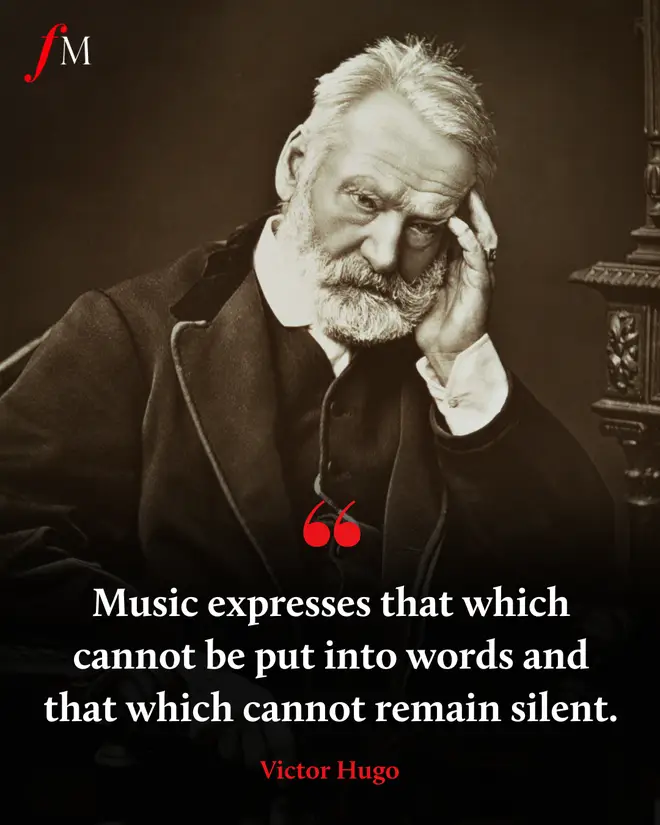
Victor Hugo, the French Romantic writer and politician, was known for being vocal about his love for music. There are several references to music in many of his most famous novels, including Les Misérables and The Hunchback of Notre-Dame. Many of his works have even inspired iconic works for the stage, including Verdi’s opera Rigoletto – based on Hugo’s play, Le roi s’amuse – as well as the ultra-famous musicals, Les Misérables and Notre-Dame de Paris.
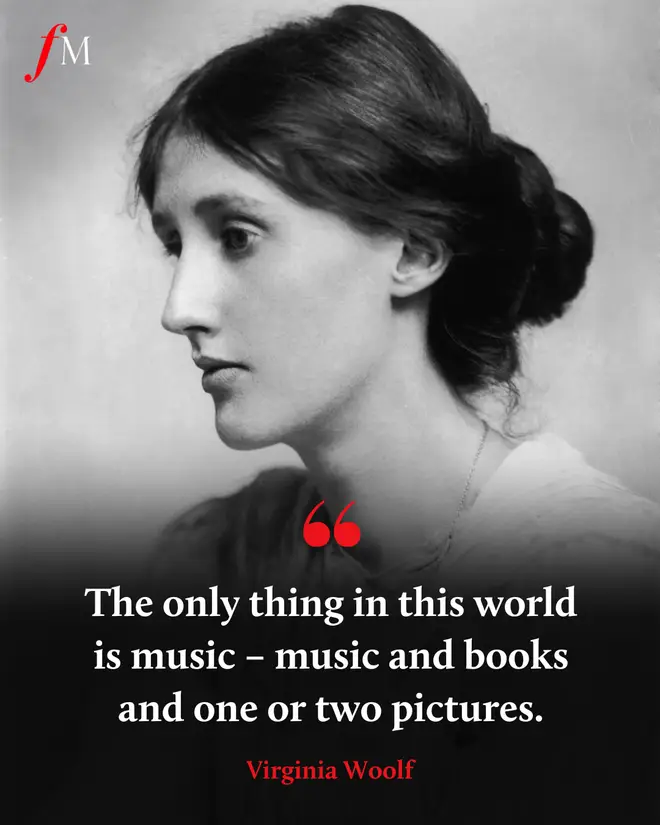
Considered one of the most important 20th-century authors, British writer Virginia Woolf was significantly impacted by music. It directly inspired her own literary compositions, playing a central role in her work as a writer. She even planned to write a book detailing the influence of music on literature, but this aim was, unfortunately, cut short by her death in 1941. Perhaps her most revealing remark was written in a letter to her friend Elizabeth Trevelyan: “It's odd, for I’m not regularly musical, but I always think of my books as music before I write them.”
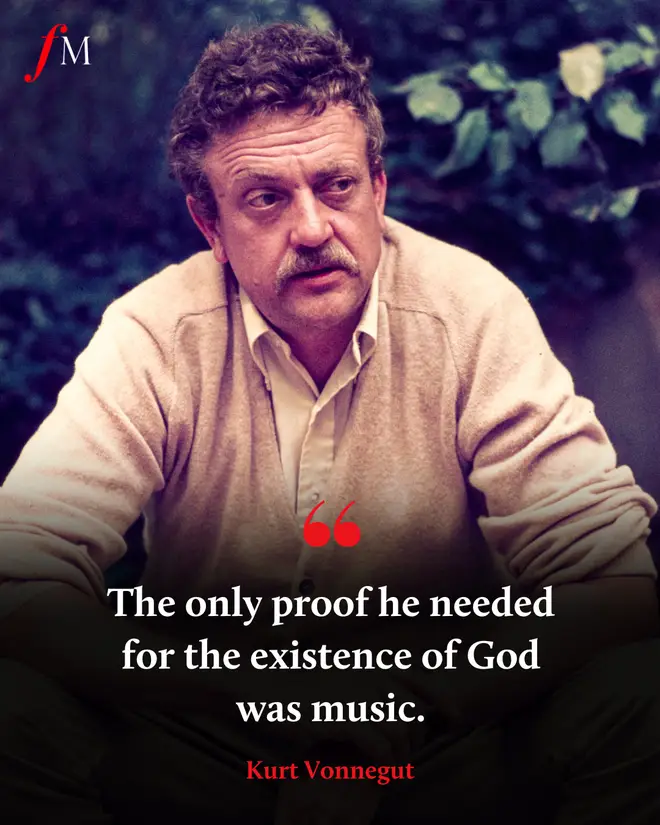
American writer Kurt Vonnegut, author of Slaughterhouse-Five, managed to capture the feeling many of us have about music being the closest we as humans can get to the divine. The entire quote actually reads, “If I should ever die, God forbid, let this be my epitaph: ‘The only proof he needed for the existence of God was music.’”
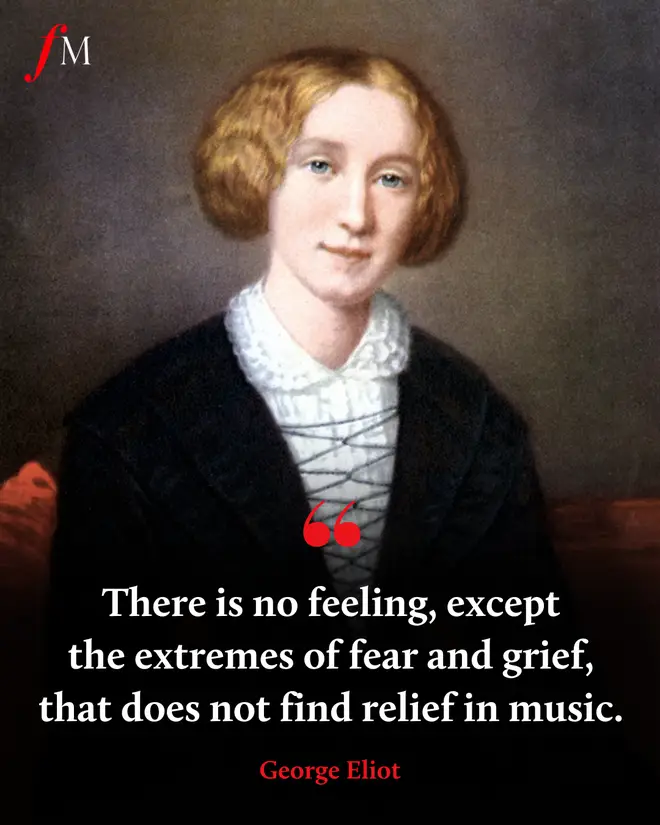
Mary Ann Evans, known by her pen name George Eliot, was an English novelist, poet and one of the leading writers of the Victorian era. Although she wrote seven novels, she is perhaps most famous for her 1871 masterpiece, Middlemarch. This moving quote comes from her 1860 novel, The Mill on the Floss, and gives us some insight into her own feelings on music. Eliot was actually a skilled pianist, who excelled in lessons while attending school, and music remained important to her throughout her life.
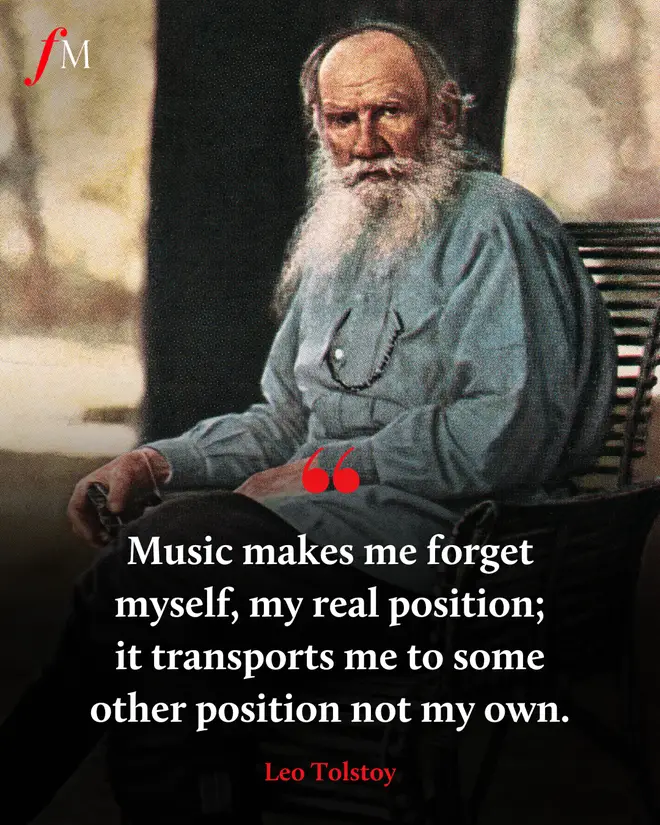
Russian writer Leo Tolstoy made his love of music known throughout his life and in his many famous works. Regarded as one of the most famous and influential authors of all time, Tolstoy is best known for his two masterpieces, War and Peace and Anna Karenina. But did you know that he also tried his hand at composition? He wrote just one musical work, titled ‘Waltz in F major’, when he was younger and considering pursuing music as a profession. Tolstoy’s personal secretary, Nikolai Gusev, stated in his memoirs that “for Tolstoy, music was not an amusement but an important business in life”, as Tolstoy was “a good musician and composer”.
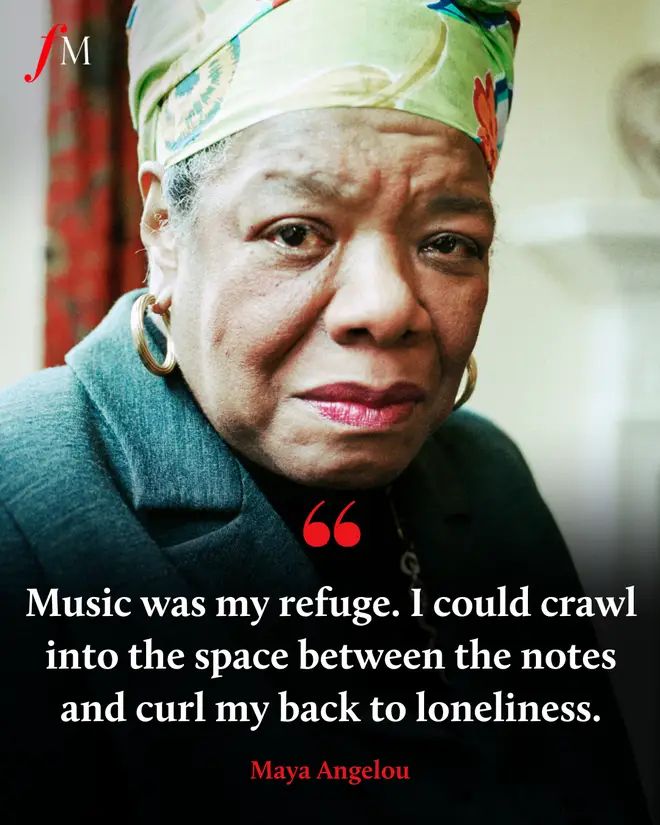
American writer and poet Maya Angelou, most famous for her inspirational writing and groundbreaking civil rights activism, was an avid music lover. In the early 1950s – a decade before she would publish her first piece of writing – she was an aspiring singer and dancer with a following in the nightclubs of San Francisco. Then writing took over her life, but the connection she felt to music, song and dance can be heard in her rhythmic, melodious poetry.
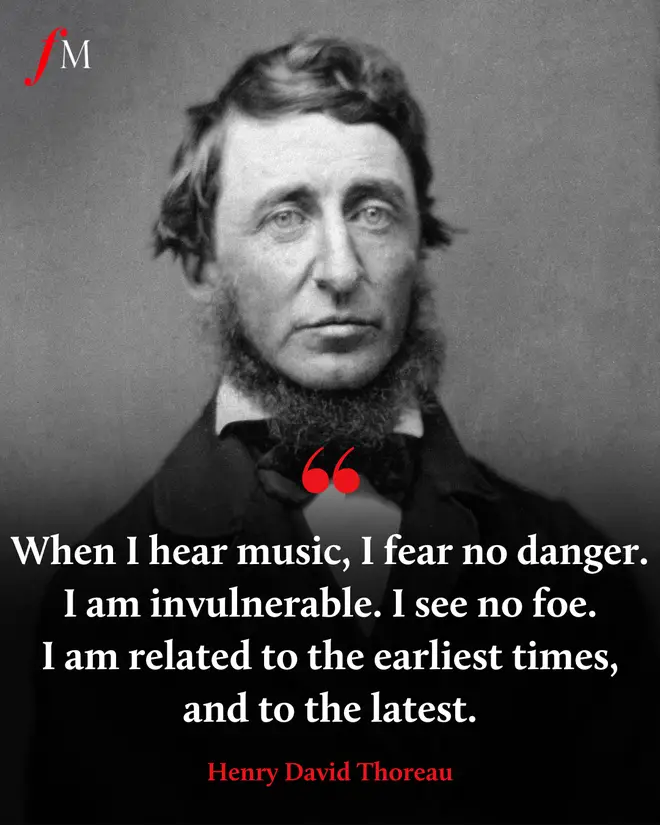
19th-century American essayist, poet and philosopher Henry David Thoreau championed the value of music alongside his leading transcendentalist values. Best known for his book Walden, which advocates simplifying life and connecting with nature, he wrote this in his journal, in an excerpt from an 1857 entry. He recognised the power of music to give solace, confidence and peace to those who listen, just as nature so often does.
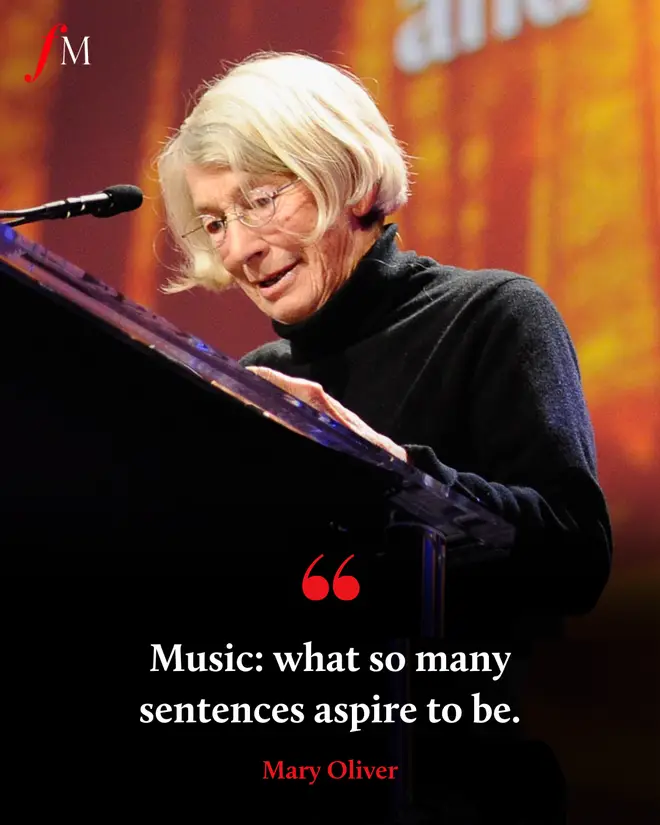
Similar to her transcendentalist forefather Thoreau, American poet Mary Oliver was known primarily for writing about her deep connection with nature. She, too, was an admirer of music, as evident in this quotation of hers, which speaks to the unparalleled power of music to express what words and sentences never could.
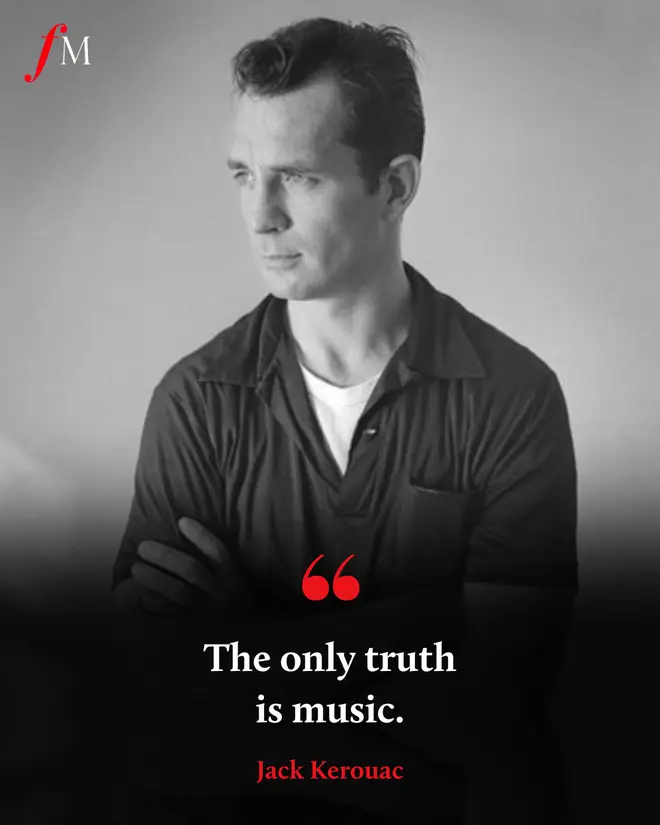
The American novelist and poet who pioneered the Beat Generation, Jack Kerouac, said it most succinctly with this straight-forward, timeless quote. The author of On the Road was famously influenced by jazz music in his poetry, even once declaring, “I want to be considered a jazz poet blowing a long blues in an afternoon jam session on Sunday.” The improvisatory, rhythmic and free nature of jazz in the 1950s appealed to Kerouac’s own writing style and personal values. He wasted no time getting to the heart of why we all love and gravitate towards music – or, as he puts it, “the only truth.”